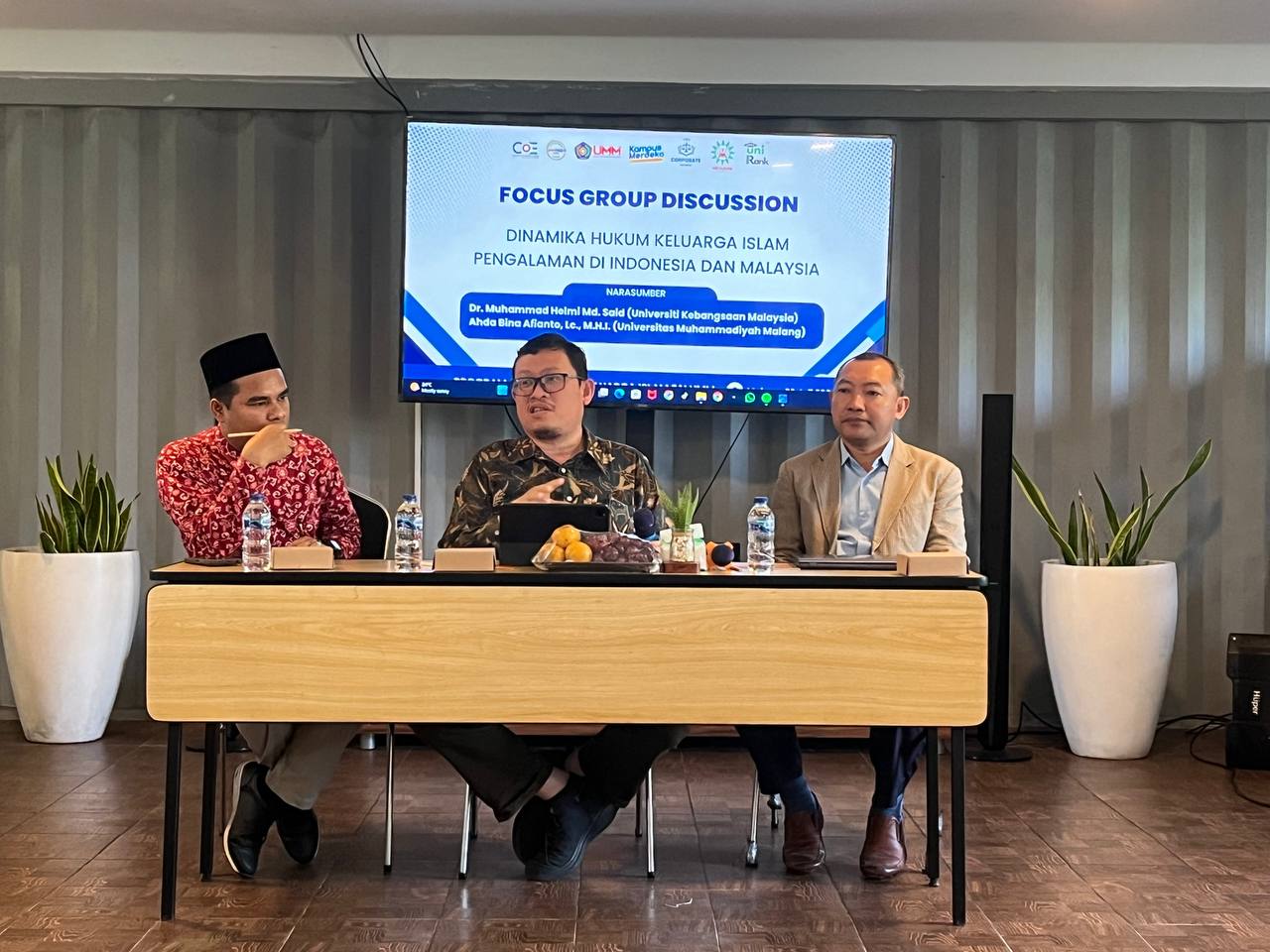
On Tuesday, July 23, 2024, at the Hall of My Dormy Hostel, UMM, the Islamic Family Law Study Program (Prodi HKI) organized a Focus Group Discussion (FGD) officially opened by the Vice Dean 3. This FGD marked the initial step in establishing collaboration between the Islamic Family Law Program and Universiti Kebangsaan Malaysia (UKM).
Dr. Muhammad Helmi Md. Said, representing Universiti Kebangsaan Malaysia’s Islamic Family Law division, delivered a presentation titled “Child Support Arrears Post-Divorce”. The session was moderated by M. Arif Zuhri, Lc., M.H.I., Head of the HKI Program.
Key Insights from Malaysia
Dr. Helmi explained that Malaysia has two marriage law systems: Islamic Marriage and Civil Marriage. Islamic family law operates under the jurisdiction of the Sultanates rather than the federal government, which acts only as a management body and not as the executor of Islamic family law.
He highlighted the role of the Family Support Division (Bahagian Sokongan Keluarga – BSK), established in 2008 under the Department of Sharia Judiciary Malaysia (JKSM). The division's primary goal is to enforce child support orders issued by Sharia Courts. Fully supported by the Malaysian government, the BSK focuses on fulfilling children’s needs, as they are seen as the nation's future generation, requiring care, protection, and proper upbringing.
The BSK performs several key functions, including:
- Providing psychological support for children through Family Relationship Centers.
- Ensuring legal certainty for children.
- Offering basic necessities funded by both Federal and Sultanate governments.
Dr. Helmi also discussed the e-Nafkah system, established in 2012 as a virtual case file platform. This system serves a dual purpose, functioning as both a database and a monitoring tool for child support cases. The BSK oversees these cases through the MySMS service, ensuring compliance and providing updates.
Insights from Indonesia
The second presentation, delivered by Ahda Bina Afianto, Lc., M.H.I., a representative from UMM’s Islamic Family Law Program, was titled “A Legal Overview of Child Protection in Indonesia.”
Ahda elaborated on Law No. 23 of 2004 on the Elimination of Domestic Violence, specifically Article 49, which stipulates that individuals guilty of family neglect may face imprisonment for up to three years or a maximum fine of fifteen million rupiah. The presentation emphasized the importance of these regulations in ensuring children’s rights and holding families accountable.
Future Collaboration Prospects
At the conclusion of the event, M. Arif Zuhri expressed his hope for continued collaboration between Prodi HKI and Universiti Kebangsaan Malaysia. He emphasized that this partnership could open doors for academic initiatives such as student exchange programs and other collaborative academic activities.
“This partnership serves as a bridge to foster academic excellence and strengthen ties between our institutions,” said Arif Zuhri.
This FGD signifies a significant step forward in fostering regional academic networks and addressing shared challenges in Islamic family law. It underscores the commitment of both institutions to advancing the welfare of families and children through cooperative efforts. (LA)

